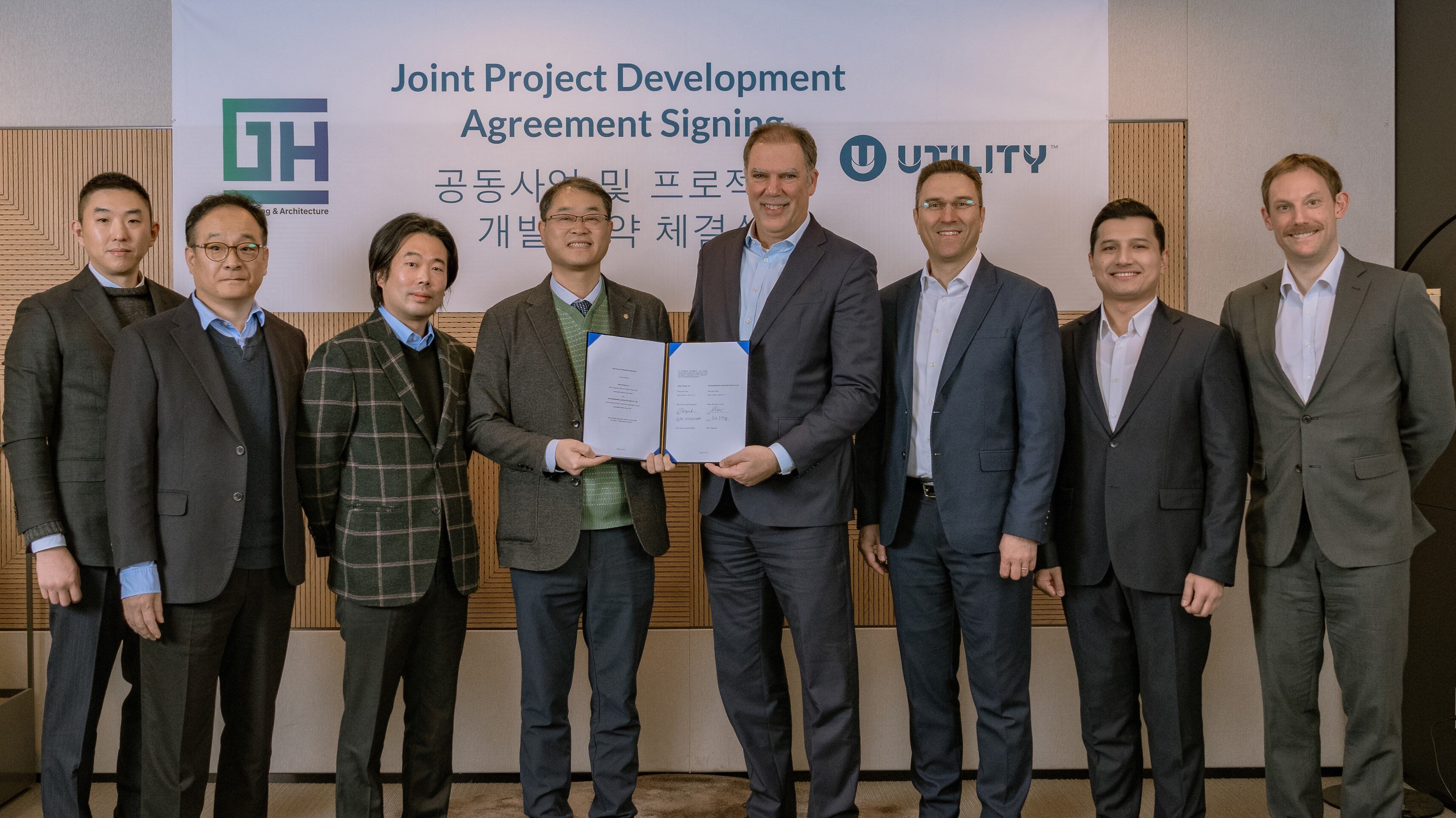Utility and GH EnA to implement H2Gen projects to produce clean carbon-negative hydrogen using biogas for Korea’s growing low carbon mobility market
HOUSTON, TX – January 7, 2025 – Utility, the off-gas-to-value company pioneering its proprietary eXERO™ gas production technology optimized to decarbonize hard-to-abate industries, today announced it has signed a commercial agreement with GH EnA of Korea for multiple projects to create clean, affordable, carbon-negative hydrogen using biogas with Utility's groundbreaking H2Gen® reactor.
This agreement represents a strategic initiative to support South Korea’s Hydrogen Economy Roadmap which prioritizes biogas and hydrogen as energy sources to achieve carbon neutrality and reduce reliance on imported fossil fuels. The country is investing heavily in biogas projects, converting organic waste into clean energy to reduce greenhouse gas emissions and enhance waste management.
GH EnA is a comprehensive engineering and architecture company specializing in the Korean energy transition. Its energy business division focuses on hydrogen fuel cells, biogas power generation and eco-friendly smart green solutions. It is leading the Korean industrial decarbonization journey by embracing technology innovations, like H2Gen, to bring clean, affordable, carbon-negative hydrogen to the mobility market from biogas producers.
The commercial agreement signed by both companies covers projects deploying H2Gen hydrogen plants in Korea. The initial projects include: Chuncheon, Taebaek, Hongcheon, Sokcho, Yangyang, Goseong and Inje. The first projects will produce hydrogen to power heavy-duty vehicles for commercial transport, buses and passenger vehicles. For these projects, GH EnA will take lead responsibility for project development with Utility providing H2Gen reactors as well as technical and commercial support.
“GH EnA is dedicated to decarbonizing our society and is a leader and innovator in developing negative carbon intensity hydrogen projects in Korea,” stated Park Ji Hong, president of GH EnA. “It is our responsibility to preserve the value of life and create a better energy environment for people through our actions, which is why we are excited to work with Utility.”
H2Gen reactors are based on Utility’s proprietary eXERO gas production technology which enables a variety of chemical reactions to produce valuable gas streams. For example, H2Gen produces hydrogen gas from water using the electrochemical energy contained in off-gases such as biogas or various steel production gases, without the need for electricity to drive the reaction. H2Gen systems have completely changed the economics and logistics of clean hydrogen compared to competing technologies, enabling many industries to meet both sustainability and business goals.
Watch the H2Gen Operating Plant Walkthrough
H2Gen Benefits in Mobility Include:
- Direct biogas conversion to hydrogen – no biogas to renewable natural gas (RNG) upgrade needed followed by a below-optimal-scale Steam Methane Reforming (SMR) to make hydrogen
- Lower CAPEX than the RNG plus SMR route
- Small footprint – roughly a third of the space required compared to RNG upgrading combined with SMR
- No power needed and a fraction of the footprint vs. electrolyzers that consume massive amounts of power and require significant space for both the electrolyzers and renewable power generation
- Negative Carbon Intensity (CI) score
- Modular, factory built scalable plants that can operate on any biogas source, e.g., landfills, wastewater treatment plants, livestock farms, etc.
- Operational simplicity with minimal biogas pre-treatment and hydrogen post-treatment
“With our H2Gen reactors, Korean companies are no longer tied to high cost, large footprint and low utilization renewable energy sources to produce clean hydrogen, which is essential for South Korea’s hydrogen economy goals and energy independence,” stated Claus Nussgruber, chief executive officer and president of Utility.“ Our technology enables customers to produce clean, affordable hydrogen on-site not only for the mobility sector, but also steel, petrochemical and other hard to decarbonize industries, turning a compliance hurdle into a competitive advantage.
Watch H2Gen Plant Performance at an Operating Steel Mill


 BACK
BACK





